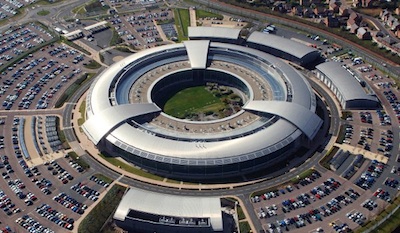
New documents released this week via the US whistleblower Edward Snowden outline how Irish subsea telecommunications cables have been extensively abused by British intelligence.
The German newspaper Sueddeutsche Zeitung released the latest documents as part of a report on a new cache of documents from Mr Snowden.
Among the 63 cables listed in documents purportedly showing which cables the agency has accessed to and to what extent are two major cables with Irish landings: the Hibernia and Solas.
The owner of the Solas undersea cable, which extends from the Wexford coast to southern Wales, is listed as “GERONTIC”, the password for Cable & Wireless, which is now part of Vodafone. Incredibly, the company is referred to as a “partner” in the spying operation and the method of access is described as “direct cable ownership”.
Irish telecoms company Eircom, formerly owned by the 26-County state, has a 50 per cent interest in the Solas cable, and its data is also thought to have been passed directly to the British authorities. Vodafone and Eircom equally denied knowledge of the intercepts by GCHQ (Government Communications Headquarters), the British military’s signals intelligence unit.
The Hibernia cable, which connects Ireland to the US and Canada from Dublin to Halifax, Nova Scotia, was also in British hands. It loops to Britain via Southport, on the other side of the Irish Sea.
SNOW JOB?
The Dublin government was accused of “putting its head down” after it declined to comment on the matter. However, it emerged the day after the revelations were made public, on November 26th, it secretly passed a new statutory instrument into law.
Minister for Justice Frances Fitzgerald rushed to enact the third part of the 2008 Criminal Justice (Mutual Assistance) Act, which defines how Ireland will provide technical co-operation to other governments, six years after the rest of the legislation was put in place.
The legislation also provides for secret ‘in camera’ courts against those companies that object or refuse to comply with an intercept order.
Dr TJ McIntyre, lecturer at University College Dublin school of law and chairman of advocacy group Digital Rights Ireland, said the activity outlined in the Snowden documents amounted to mass surveillance and that “literally everything” was being monitored by the British government.
He said the revelations raised questions for the government but that its response had been to “go to ground” and refuse to comment publicly. A minister should not have the power to force companies to comply with secret orders, he added.
“Even with very sensitive cases in Ireland they’re not prosecuted in camera. It’s worrying because it means telecommunications companies might be pressured into doing things that aren’t entirely legal.”
Previous tranches of GCHQ documents showed the agency recorded the entire content of internet traffic for three days and held onto metadata for 30 days. “That means that they can rewind and listen to anybody’s voice conversations, read anybody’s email, monitor anybody’s web browsing from up to three days ago,” Dr McIntyre said.
PSNI SNOOPS
Separately, Liberty also said this week that the PSNI police in the Six Counties have secretly monitored online and telephone activity of Irish citizens almost 20,000 times in the past three years.
It was reported that the PSNI has paid almost half a million pounds to phone and internet companies to access people’s emails, phone records, browsing history and other personal communications data.
James Welch, legal director of Liberty, said: “The police and other public bodies massively overuse their power to get communications data.
“This overuse is hardly surprising when there’s no requirement for prior authorisation from a judge.
“The unfettered use of this power to investigate journalists’ sources is particularly concerning to those who value free speech. Free and fearless journalism is essential in any democracy.”
![[Irish Republican News]](https://republican-news.org/graphics/title_gifs/rn.gif)
![[Irish Republican News]](https://republican-news.org/graphics/title_gifs/harp.gif)

